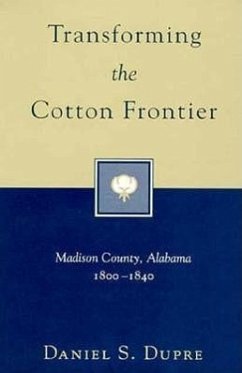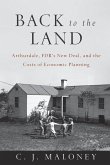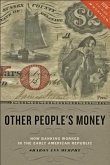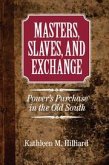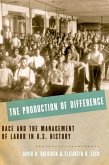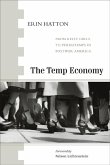In this innovative study, Daniel S. Dupre offers a history of the first generation of one community on the cotton frontier of the Old Southwest, from the speculative schemes of the late eighteenth century to the Panic of 1837 that ended the "flush times." Rural Madison County, in north Alabama's fertile Tennessee Valley, attracted a diverse population of planters, slaves, and yeoman farmers that differed from that of Huntsville, the commercial heart of the county, which developed into an ambitious mercantile and professional center. Dupre's examinations of settlement, banking, land relief, internal improvements, crime, benevolence and reform, religion, factional and party conflict, and slave disorder clearly reveal the tensions and bonds existing among these opposing groups as the region struggled to transcend its frontier origins. In tracking Madison County's development, Dupre stresses the interplay of commercial and subsistence ideals, the expansion westward of a venturesome market economy and of a more conservative set of agrarian values. When settlers cleared the land, Dupre explains, they sought to secure the independence that came from subsistence and to set the stage for economic development. But the cotton boom of 1818 and the Panic of 1819 fractured these objectives and polarized the community through the 1820s and 1830s. Dupre traces the emergence of two broad ideologies--a booster's vision of progress through consensus, order, and commercial vitality versus a preoccupation with the preservation of liberty coupled with a suspicious attitude toward economic and governmental power. These modes of thinking, sharpened through local disputes over economic policy, social reform, and political culture, provided the foundation for the Second American Party System in north Alabama. In the process of building societies on the cotton frontier, citizens struggled to reconcile the aims of subsistence and commerce, debated the proper balance of liberty and order, and argued about representation and democracy. Thus, more than a local history, Transforming the Cotton Frontier explores the intersection of community and ideology and provides a glimpse of the broad forces of change sweeping through the early American republic.
Hinweis: Dieser Artikel kann nur an eine deutsche Lieferadresse ausgeliefert werden.
Hinweis: Dieser Artikel kann nur an eine deutsche Lieferadresse ausgeliefert werden.

